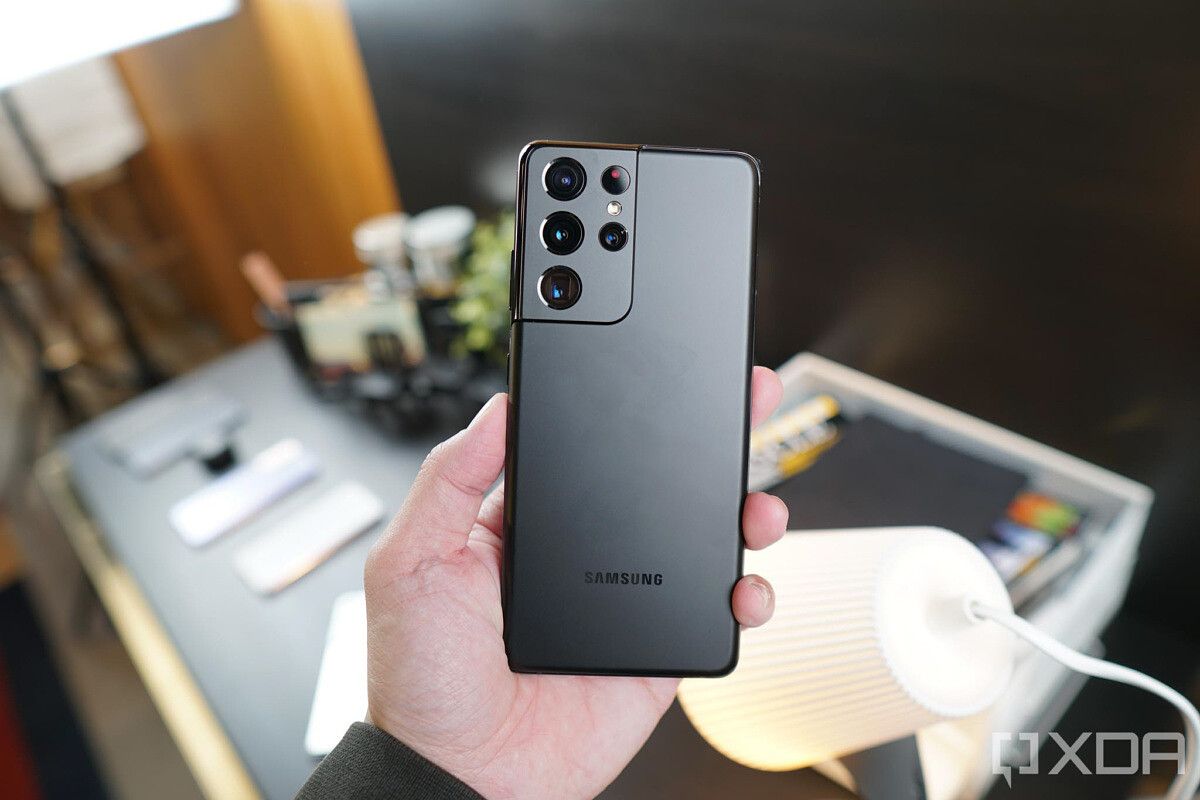To kick off the New Year, the WiFi Alliance announced that it has begun to certify products for WiFi 6E. Now, Broadcom has revealed that the company’s BCM4389 chip will enable WiFi 6E in the Galaxy S21 Ultra.
The news means Samsung’s newest flagship is the first (and so far only) smartphone to feature WiFi 6E, and will allow the device to achieve WiFi speeds over 2Gbps. Unfortunately, it doesn’t appear the Galaxy S21 or Galaxy S21 Plus include the Broadcom BCM4389 chip.
According to Broadcom, the chip also features a multi-radio Bluetooth 5 architecture that supports a premium audio experience with Samsung Galaxy Buds Pro, and Tri-Band Simultaneous (TBS) connectivity that improves WiFi and Bluetooth performance and battery utilization.
In addition to WiFi 6E, Broadcom BCM4389’s TBS connectivity architecture brings better WiFi QoS, more precise indoor location accuracy and five times better battery utilization compared to current audio headsets even in heavily congested locations like subway stations.
WiFi 6E is expected to become more widely available in 2021 with smartphones, PCs, laptops, and TVs expected to support the technology. As we previously explained, the arrival of WiFi 6E (WiFi at 6GHz) should feel like expanding a two-lane highway into an eight-lane highway, which should ease the transition of working from home.
Samsung Galaxy S21 Ultra Forums
In addition to the Galaxy S21 Ultra supporting WiFi 6E, a number of new routers were announced at CES 2021 that will also launch with WiFi 6E support. So far, countries like the U.S., U.K., Europe, Chile, and South Korea have begun to license the use of the 6GHz band, while other countries are on a similar path toward approval.
Here are some of the Broadcom HCM4389’s key highlights:
- Seven Wi-Fi and Bluetooth radios
- Support for 2 streams of Wi-Fi 6E
- Multi-Radio Bluetooth 5 with antenna beamforming
- Tri-Band Simultaneous (TBS) architecture including a dedicated background scan radio for Wi-Fi and Bluetooth
- Simultaneous dual-band operation
- 2.63 Gbps PHY rate
- Operation in 2.4 GHz and 5.1-7.125 GHz unlicensed bands
- 160 MHz channel bandwidth
- 1024-QAM modulation
- OFDMA
- MU-MIMO

